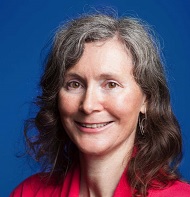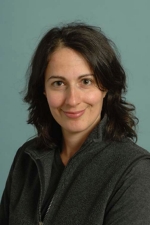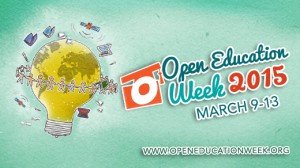Next time you visit the Library, please drop by our new Open Access Wall of Fame, located on the main floor of the Library, near the Research Help area. The Wall of Fame provides us with an avenue to acknowledge and support Ryerson faculty who consider open access avenues when publishing their work. Open Access material is scholarly work that is made legally available with no restrictions so that anyone can access the full text. RULA supports open access through our Digital Repository, an online space for collecting, preserving, and providing online access to research and teaching materials created by the Ryerson community.
 Catherine Middleton is a professor with the Ted Rogers School of Information Technology Management (TRSM), a current Canada Research Chair, and a consistent contributor to the Library’s Digital Repository, a space for collecting, preserving, and providing online access to research and teaching materials created by the Ryerson community. Upon her induction to the Open Access Wall of Fame, Professor Middleton made the following statement: “Publishing work in open access venues like the RULA Digital Repository is crucial to make academic research accessible to broad and diverse audiences, including policy makers, students at all levels, and interested citizens.” Read more about Catherine here.
Catherine Middleton is a professor with the Ted Rogers School of Information Technology Management (TRSM), a current Canada Research Chair, and a consistent contributor to the Library’s Digital Repository, a space for collecting, preserving, and providing online access to research and teaching materials created by the Ryerson community. Upon her induction to the Open Access Wall of Fame, Professor Middleton made the following statement: “Publishing work in open access venues like the RULA Digital Repository is crucial to make academic research accessible to broad and diverse audiences, including policy makers, students at all levels, and interested citizens.” Read more about Catherine here.
 Dr. Harald Bauder is the Academic Director of the Ryerson Centre for Immigration & Settlement and a Graduate Professor in Immigration & Settlement Studies and the Department of Geography. Dr. Bauder co-authored a report, “Toronto’s Little India: A Brief History“, which is available in RULA’s Digital Repository. This report has been viewed 11592 times, and downloaded 611 times, and is the most popular item in the repository.
Dr. Harald Bauder is the Academic Director of the Ryerson Centre for Immigration & Settlement and a Graduate Professor in Immigration & Settlement Studies and the Department of Geography. Dr. Bauder co-authored a report, “Toronto’s Little India: A Brief History“, which is available in RULA’s Digital Repository. This report has been viewed 11592 times, and downloaded 611 times, and is the most popular item in the repository.
 Dr. Enza Gucciardi is an Associate Professor in the School of Nutrition and an Affiliate Scientist with the Toronto General Hospital Research Institute. She has written over a dozen publicly-accessible manuscripts on diabetes research, many of which are accessible in RULA’s Digital Repository.
Dr. Enza Gucciardi is an Associate Professor in the School of Nutrition and an Affiliate Scientist with the Toronto General Hospital Research Institute. She has written over a dozen publicly-accessible manuscripts on diabetes research, many of which are accessible in RULA’s Digital Repository.
 Dr Gucciardi is an Associate Professor in the School of Nutrition and an Affiliate Scientist with the Toronto General Hospital Research Institute. She has written over a dozen publicly-accessible manuscripts on diabetes research. On the subject of open access, she writes:
Dr Gucciardi is an Associate Professor in the School of Nutrition and an Affiliate Scientist with the Toronto General Hospital Research Institute. She has written over a dozen publicly-accessible manuscripts on diabetes research. On the subject of open access, she writes: